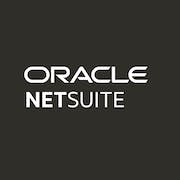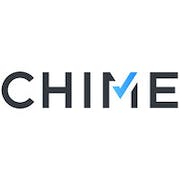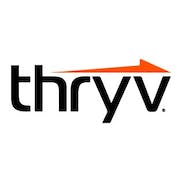Are you tired of guessing which sales tactics work and which ones don't? Are you struggling to measure the performance of your sales team? If so, you're not alone. These are common problems faced by businesses of all sizes. But the good news is, you don't have to rely on guesswork anymore. Thanks to the latest advancements in technology, sales tracking software is now available to help you streamline your sales process, optimize your sales team's performance, and achieve your sales goals faster. In this Sales Tracking Software buyer's guide, we'll take a deep dive into what this software can do for your business, what features you should look for, and how to choose the best solution for your needs. So let's get started!
What is Sales Tracking Software
Sales Tracking Software is a tool that enables businesses to track and manage their sales activities. It is a type of software that allows companies to monitor their sales pipeline, identify opportunities, and forecast revenue. This software helps businesses to improve their sales performance by providing them with a comprehensive view of their sales activities. Sales Tracking Software is essential for sales teams to manage their tasks efficiently and maximize their productivity. Common Use Cases of Sales Tracking Software: - Lead Management: Sales Tracking Software is used to manage leads and track their progress in the sales pipeline. - Forecasting: This software is used to forecast future sales based on past performance and current trends. - Performance Monitoring: Sales Tracking Software enables businesses to track the performance of their sales team and identify areas for improvement. - Reporting: This software generates reports on sales activities and offers insights into sales performance. Types of Companies that use Sales Tracking Software: - Small and Medium Enterprises (SMEs): SMEs use sales tracking software to keep track of their sales activities and optimize their sales performance. - Large Enterprises: Large enterprises use sales tracking software to manage their complex sales processes and track their sales progress. - Startups: Startups use sales tracking software to manage their sales activities and build their sales pipeline. In conclusion, Sales Tracking Software is an essential tool for businesses of all sizes. It allows companies to manage their sales processes efficiently, track their sales activities, and forecast revenue. The software is commonly used for lead management, performance monitoring, reporting, and forecasting. SMEs, large enterprises, and startups are the primary users of Sales Tracking Software.
Benefits of Sales Tracking Software
As a business owner, keeping track of sales is one of the most important tasks to ensure success and growth. But, as your business expands, it can be increasingly difficult to manually manage sales data. That's where sales tracking software comes in. Here are some of the main benefits of using sales tracking software for businesses: - Improved accuracy: Manually recording sales data may lead to errors, which can have a significant impact on your business. Integrating sales tracking software automates the process, reducing the risk of human error. - Time-saving: Sales tracking software streamlines the process of tracking sales, saving you time and increasing productivity. It eliminates the need for manual data entry and automatically generates reports that allow you to analyze sales trends quickly. - Enhanced customer relationship management: Sales tracking software helps you provide better customer service by giving you access to key information about your customers. You can analyze their purchase history and preferences, and use this data to tailor your marketing efforts and build stronger customer relationships. - Improved sales forecasting: Sales tracking software provides accurate sales data that you can use to evaluate your business performance and forecast future sales. This data is essential for making informed decisions and planning for the future. - Increased profitability: Sales tracking software helps you identify areas of your business that are performing well and those that need improvement. With this data, you can make informed decisions that increase profitability by optimizing sales strategies, reducing costs, and improving customer satisfaction. Overall, sales tracking software is an essential tool for businesses of all sizes that want to improve sales, increase productivity, and ultimately grow their business. By providing accurate data, saving time, and improving customer relationship management, sales tracking software can help take your business to the next level.
Features of Sales Tracking Software
Sales tracking software is an essential tool for businesses to keep track of sales data and streamline their processes. As businesses grow, it can become increasingly difficult to manage sales without proper software. In this section, we will highlight the top 10 common features of sales tracking software that businesses find most useful. 1. PIPELINE MANAGEMENT: A sales tracking system allows businesses to monitor their sales pipeline and identify potential areas of concern. By tracking the different stages of the sales process, sales teams can ensure that deals are moving through the funnel smoothly. 2. CUSTOMIZABLE DASHBOARDS: Dashboards provide a quick overview of sales data and can be customized to display the most relevant information. Sales tracking software often comes with pre-built dashboards, but businesses can also create custom dashboards to track specific KPIs. 3. SALES FORECASTING: By analyzing past sales data, sales tracking software can assist organizations with sales forecasting. This feature is particularly useful for setting targets and adjusting sales strategies. 4. REAL-TIME DATA INTEGRATIONS: Sales tracking software can integrate with other systems for real-time data syncing. This means that businesses don't need to manually input data into their sales tracking software and can instead rely on automatic updates. 5. MOBILE ACCESS: Sales tracking software that is accessible from mobile devices can help sales teams to keep track of their deals while on-the-go. This feature provides greater flexibility and can help teams to close deals faster. 6. TEAM MANAGEMENT: Sales tracking software often comes with team management features that allow administrators to set permissions and manage user access. This feature is especially useful for larger organizations with multiple sales teams. 7. REPORTING: With sales tracking software, businesses can generate reports to analyze sales data and identify trends. These reports can provide valuable insights for sales teams and help organizations to make data-driven decisions. 8. NOTIFICATION ALERTS: Notification alerts can be set up to notify sales teams of important updates, such as new leads or deals closing. This ensures that sales teams are always aware of any changes in the sales pipeline. 9. CUSTOMER RELATIONSHIP MANAGEMENT (CRM) INTEGRATIONS: Sales tracking software can integrate with CRM systems, which can provide sales teams with greater insights into customer behavior and ensure that customers are being managed effectively. 10. DATA SECURITY: Sales data is often sensitive, which is why most sales tracking software comes with advanced security features. Data encryption, user authentication, and role-based access control are just some of the measures that can be put in place to protect sensitive sales data. In conclusion, sales tracking software provides businesses with valuable insights into their sales performance and allows sales teams to manage deals more effectively. The above 10 common features of sales tracking software are just a small selection of the many features available. Each organization should carefully review their needs and select a sales tracking software that meets their specific requirements.
Considerations of Sales Tracking Software
Sales tracking software has become an essential tool for businesses that want to effectively manage and optimize their sales processes. However, with so many options available in the market, choosing the right software can be a daunting task. In this article, we will discuss the most crucial factors that businesses should consider when purchasing sales tracking software. 1. Features: When purchasing sales tracking software, it is essential to choose software that offers the features that your business requires. The software should be customizable to fit the needs of your business and should offer features such as lead and opportunity tracking, forecasting, analytics, and integration with other tools. 2. Ease of use: The software should be user-friendly and easy to navigate. It should be intuitive and require minimal training for your team to start using it. Complex software with a steep learning curve may reduce productivity and discourage your team from using it, leading to poor adoption rates. 3. Price: The price of the software is a crucial factor to consider because you don't want to spend too much money on a software that doesn't deliver the results you require. However, the lowest-priced software may not have all the essential features that your business needs. It is essential to strike a balance between what you need and what you can afford. 4. Customization: Every business is different, and sales tracking software should be customizable to meet your business's specific needs. The software should allow you to set up custom fields and workflows to match the sales processes of your business. 5. Scalability: As your business grows, your sales tracking software should grow with it. The software should be scalable to accommodate changing business needs and accommodate your business's growth. Choose software that can handle an increasing number of leads, users and offer robust analytics tools for forecasting and revenue projections. 6. Security: Your sales data and customer information are critical and must be kept secure. The software should have robust security features such as encryption, two-factor authentication, and device management to ensure the data is secure. 7. Customer support: The software vendor should provide excellent customer support and technical assistance, with a 24/7 support system. Software that offers hands-on training and regular software updates will ensure that your team is always up to date on the latest features. In conclusion, by considering these seven factors, businesses can choose the right sales tracking software that meets their specific needs. The right software can help businesses to streamline sales processes, improve productivity, reduce errors, and drive sales growth.
Software Trends for Sales Tracking Software
The sales industry is constantly evolving, and staying up-to-date on the latest trends is essential for success. One area that has seen significant growth is sales tracking software. These tools are vital for managing sales processes and increasing efficiency, but what are the biggest trends to watch in 2023 and beyond? Firstly, automation is set to become a game-changer, as sales teams look to streamline their workflows and save time. AI-powered tools can help with everything from lead generation to customer management, delivering insights and recommendations that drive revenue growth. Secondly, integrations with other software tools are on the rise, as businesses look for end-to-end solutions that work seamlessly together. This means that sales tracking software needs to be flexible and adaptable, integrating with everything from email providers to social media platforms. Thirdly, mobile optimization is crucial, with sales teams increasingly working from tablets and smartphones. Sales tracking software needs to be accessible on-the-go, with user-friendly interfaces and responsive design. Finally, data analytics is set to become even more important, as businesses look for ways to draw insights from large amounts of customer and sales data. Sales tracking software needs to offer powerful reporting and analytics tools, helping businesses to identify trends, track KPIs, and optimize their sales processes. In short, the sales tracking software landscape is constantly evolving, with new technologies and methodologies emerging all the time. By staying up-to-date with the latest trends, businesses can gain the edge they need to succeed in an increasingly competitive marketplace.







